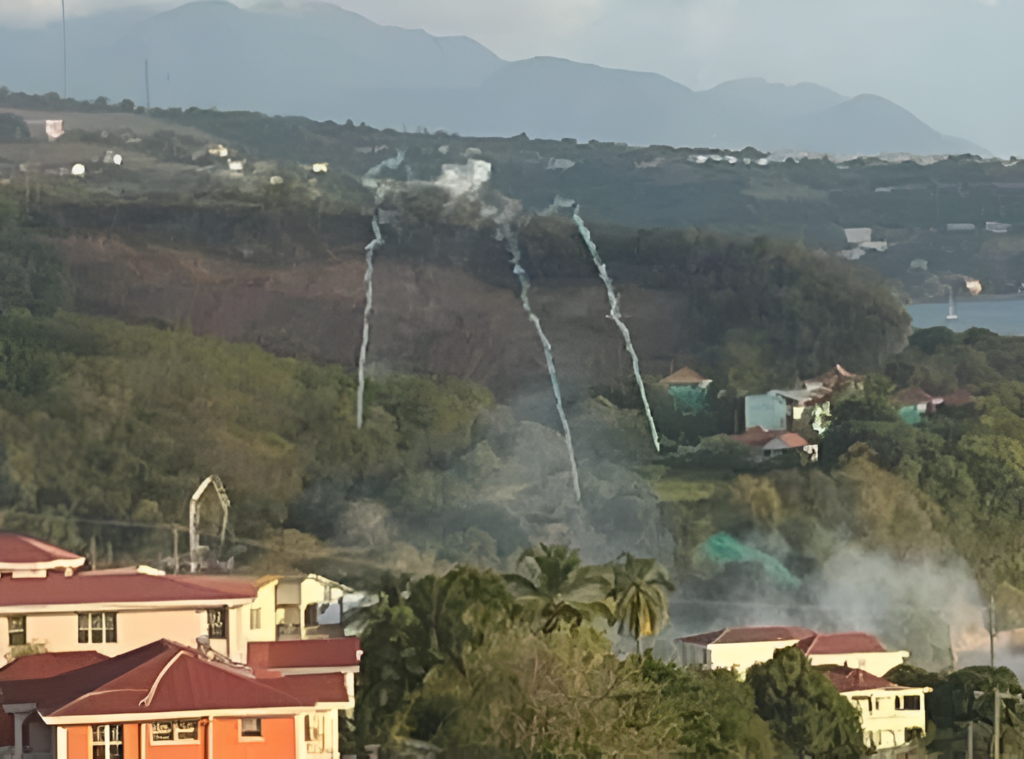Menu
Close
When scores of Caribbean people assemble in determined protest to obstruct the debate on a bill and struggle with police officers to remove metal barricades protecting parliament, and when they are unbowed by tear-gas and rubber-bullets, undoubtedly an extra-ordinary moment of political contradiction is unfolding.
Such events are rare and require understanding. They cannot be dismissed as “partisan motivated” or as the work of disgruntled leaders.

As Leon Trotsky has taught: “A mass uprising is no isolated undertaking, which can be conjured up any time one pleases. It represents an objectively-conditioned element in the development of a revolution, as a revolution represents an objectively-conditioned process in the development of society”. The only explanation for the mass uprising is the mass uprising itself.
The above provides a lens for discussing the protests in Dominica on March 19th, when large numbers assembled to denounce the tabling of a series of electoral reform bills in the parliament. Their gathering resulted in pitched battles with the police, captured in videos showing evidence of state violence inclusive of punching, tear-gassing, and the firing of rubber bullets.
It is not every day that “respectable church ladies” will confront the police in close quarters over an impending law. The protest, therefore, should not be disparaged, as was done by Prime Minister Roosevelt Skerrit, on the basis that they were led by “a group of activists who hold no constitutional authority”.
What indeed was being observed, was a definitive politico-cultural struggle determined to transform, not only the electoral laws but the intangible democratic-cultural environment which has been established in the Caribbean since the 1990s. This “environment” contains negative features such as vote-buying, paid election consultants and “strategists”, loose election financing rules, and the dominance of “fetes” rather than issue-based campaigns.
Any suspicion of the Dominica government’s motives in engaging in electoral reform cannot be divorced from the disquiet around the way-too-early election in 2022, in imitation of a similar decision by Mia Mottley of Barbados, despite the generous mandate and the several years of political domination by the Dominica Labour Party (DLP), aimed solely at annihilating the already hamstrung opposition.
Prime Minister Roosevelt’s Skerrit’s taunt “about those who boycotted the election” is therefore suggestive of his inability to fully grasp the historical moment that presented itself to Dominica in the protests.
The democratically mature response to a mass uprising is to halt, temporarily, the decision that caused the protest. The second step is to organize a genuinely open forum for compromise. In our small, closely inter-woven societies, tear gas and rubber bullets should not be a substitute for dialogue and discussion. Thirdly, honest acknowledgement of the history of sustained one-sided electoral victories must be the starting point of any reform. It must be acknowledged that there can be no democracy without democrats. Will the democrats please stand up?

Showcasing stories of Caribbean organizations at the foreground of the struggle against disaster capitalism in the Caribbean. Our network of participants in the Greater Caribbean region connect, learn, share their hands on responses to the impacts of the twin threats of the climate crisis and disaster capitalism in our region.
WAVE (Progressive Reform Movement)
Global Challenges Research Fund
Open Society Foundations
All Rights Reserved – strongercaribbeantogether.org 2022
All Rights Reserved – strongercaribbeantogether.org 2022
In the tumultuous aftermath of disasters, it is easy to feel isolated and alone, but you are not.
We, a network of Caribbean-wide community organizers who stand in solidarity with those affected the twin threats of the climate crises and disaster capitalism, a phenomenon that exacerbates the suffering of vulnerable communities.
We want you to know that your stories matter. We are here to listen, to support, and to amplify your voices.
We believe that together, we can challenge the forces of disaster capitalism and advocate for more sustainable, inclusive and equitable decision-making.
Join us in solidarity. Share your experiences and let’s build strong communities that thrive together.
As the wider world braces for the climate change, Caribbean communities are already struggling with its effects. Small local communities, small scale farmers and coastal communities are disproportionately affected. Political decisions, power dynamics and laws often compound the catastrophes and silence bottom up solutions.
There are ways in which you can help.